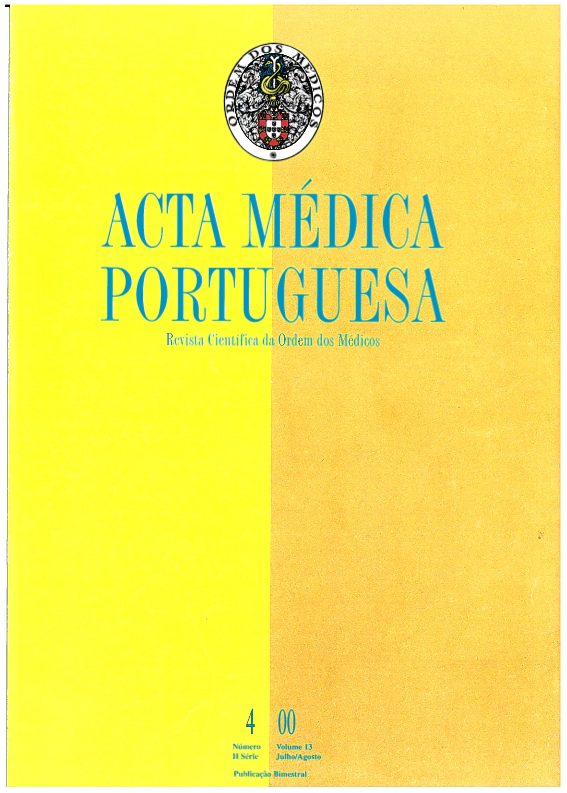The family physician and the human immunodeficiency virus seropositive patient.
DOI:
https://doi.org/10.20344/amp.1789Abstract
To characterize a subject who is HIV positive and closely observed in the consultation of clinical immunology (Santo António General Hospital), from a demographic and socio-economic point of view; to determine the percentage of these subjects who have a family doctor; how often they go to a family doctor; the reasons for a more frequent visit to the doctor; if there has been any alteration in the reasons for consulting the family doctor after establishing the diagnosis of HIV infection; who made the diagnosis of HIV infection; to evaluate, from these patient's point of view, if there has been any alteration in the family doctor's attitude or vice versa after the diagnosis. CHARACTERISATION OF THE STUDY: A descriptive, transversal study was carried out from 30/01/97 to 13/03/1997.A questionnaire with twenty-two questions was used in a personal interview of a random sample of 100 patients observed in the Consultation of Clinical Immunology at Santo António General Hospital and represented 40% of the population studied.One hundred patients answered the questionnaire, 73 were male and 27 female, with an mean age of 34.73 years. The majority were single, representing 44% of the random sample, 33% had completed primary education (or equivalent), and 28% had attended secondary school (complete or incomplete), 35% of the subjects were employed and 34% unemployed. In what concerns area of residence, the majority live in the metropolitan area of Oporto. The majority of the patients (85%) had a family doctor. Nevertheless, 1/3 had never paid a visit to their doctor and, as for the others, the majority rarely did. After the diagnosis of HIV infection, the reasons that led patients to see their doctors were merely administrative (prescriptions--24.56%, sick leave--21.05%). On the other hand, before the diagnosis, health problems were their major concern and priority (27.54%). The diagnosis was made in equal proportion (28%) by the hospital services and by institutions providing health care for drug addicts. In most cases, from the patient's point of view, there had not been any change in the family doctor's attitude after the diagnosis of HIV infection and vice versa.Although the majority of the subjects have a family doctor, their demand is very low, therefore, there is a waste of opportunities in terms of primary, secondary and tertiary medical care.Downloads
Downloads
How to Cite
Issue
Section
License
All the articles published in the AMP are open access and comply with the requirements of funding agencies or academic institutions. The AMP is governed by the terms of the Creative Commons ‘Attribution – Non-Commercial Use - (CC-BY-NC)’ license, regarding the use by third parties.
It is the author’s responsibility to obtain approval for the reproduction of figures, tables, etc. from other publications.
Upon acceptance of an article for publication, the authors will be asked to complete the ICMJE “Copyright Liability and Copyright Sharing Statement “(http://www.actamedicaportuguesa.com/info/AMP-NormasPublicacao.pdf) and the “Declaration of Potential Conflicts of Interest” (http:// www.icmje.org/conflicts-of-interest). An e-mail will be sent to the corresponding author to acknowledge receipt of the manuscript.
After publication, the authors are authorised to make their articles available in repositories of their institutions of origin, as long as they always mention where they were published and according to the Creative Commons license.









